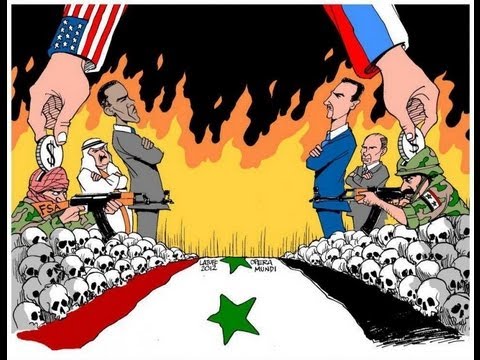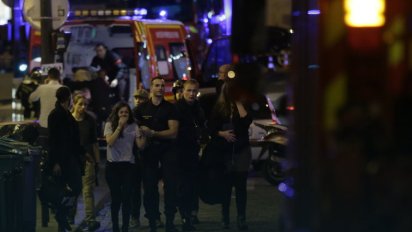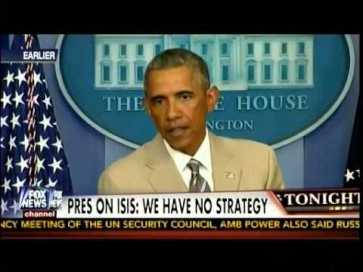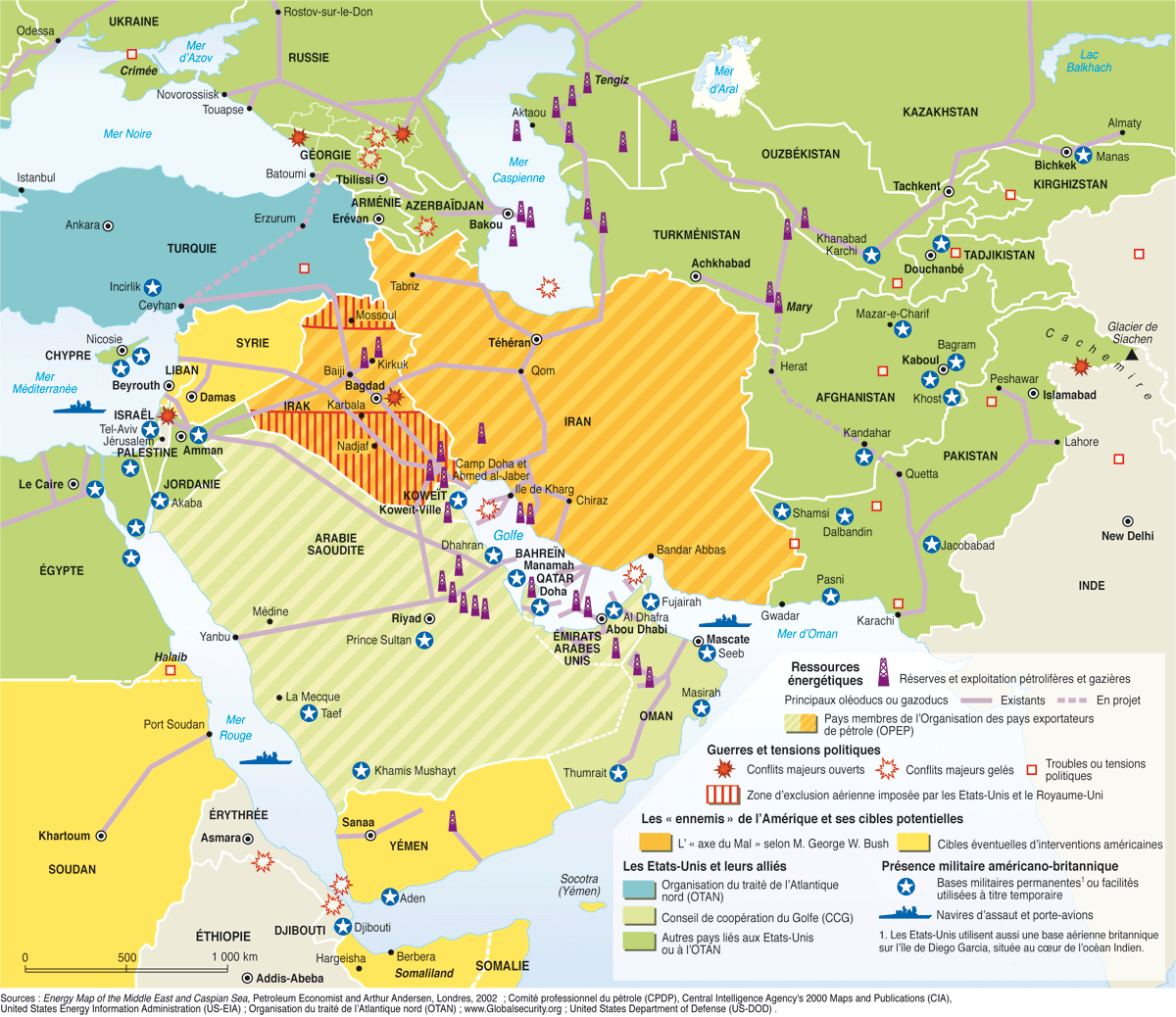
W wielu moich tekstach wyrażałem przekonanie, że ani religia ani też ideologia nie są podstawowymi źródłami konfliktów. Religie mogą przecież funkcjonować obok siebie bez konfliktów, a nawet nietrudno znaleźć w nich zasadnicze zbieżności bardzo ułatwiające pokojową koegzystencję.
Spory w tym obszarze mogą więc być jedynie domeną teologów lub historyków. Z kolei ideologie mogą rywalizować ze sobą na polu gospodarki, czy nauki. Można wówczas szukać uzasadnienia, który z systemów lepiej się sprawdza. W warunkach wyraźnych dysproporcji, można wzorem Chin łączyć i modyfikować system wewnętrzny odchodząc od filarów danej ideologii, a dzięki temu przyśpieszając rozwój wewnętrzny i możliwości współpracy międzynarodowej.
Zarówno ideologia jak i religia, mają więc dawać możliwość rozwoju wewnętrznego człowieka jak i społeczeństwa, podnosząc poziom ekonomiczny i cywilizacyjny w pierwszym jak i duchowy oraz relacji między ludzkich w przypadku drugim. Jednakże religia i ideologia stanowią też łatwe narzędzie wykorzystywane przez strony do kreowania konfliktów i mobilizowania społeczeństw do udziału w nich. Ideologia przyjmowana przez strony tak, aby ułatwiać zarządzanie danym społeczeństwem i aby umożliwić wraz z religią takie ukształtowanie społeczeństw, aby były skłonne do walki z przeciwnikiem o innej ideologii w imię „wyższych wartości”.
Częścią zarówno ideologii jak i religii można uczynić dążenie do rozszerzenia ich na inne społeczeństwa. Wszak chcemy się podzielić naszą „dobrą nowiną” albo naszym „wyższym poziomem cywilizacyjnym” z innymi. Z drugiej strony – u odbiorców tych „dóbr” pojawia się poczucie agresji ze strony obcej, agresywnej ideologii czy religii.
A więc dążenie do rozszerzania własnych mechanizmów i sposobów funkcjonowania, które uznajemy za najlepsze, na inne społeczeństwa, jest już elementem polityki, stanowiąc pas transmisyjny umożliwiający wykorzystanie ich przeciwko innym społecznościom. Wszak sam Arystoteles mówił, że:
„(…) (Ważne jest zbadanie) jaki jest najlepszy ustrój, jak się powinien przedstawiać, by jak najwięcej czynił zadość życzeniom, tudzież, jaki ustrój tym lub innym ludziom odpowiada”ks. IV, 1, 1, 2..
oraz
„Trzeba się bowiem zastanowić, nie tylko jaki ustrój jest najlepszy, ale i nad tym, jaki jest możliwy (…)” Arystoteles, Polityka, ks. IV, 1, 1, 3.
Wszystko to można zastosować zarówno do kwestii wojny między państwami, ale też do walk frakcji lub całych partii politycznych. Prawdziwa walka toczy się jednak o to, o co toczyła się w czasach przedhistorycznych, w starożytności i średniowieczu, czyli o „bogactwa” i władzę. Zależnie od danych polityków jedna wartość bądź druga może być ważniejsza, niemniej są one od siebie zależne i ze sobą nierozerwalnie związane.
Powyższa teza staje się łatwa do uzasadnienia, jeśli weźmiemy pod uwagę, że zarówno religia jak i ideologia nie stanowią żadnego uzasadnienia dla wojen. Dopiero chęć dominowania nad innymi jest powodem koniecznym dla rozpoczęcia konfliktu i do tego właśnie narzędziem najłatwiejszym są religia i ideologia. Aby mieć władzę nad sąsiednim społeczeństwem możemy wykorzystać kilka sposobów:
- Zachęcić odpowiednim systemem korzyści jakie z podległości wynikają.
- Zastraszyć za pomocą odpowiednich środków perswazji: od straszenia innym „gorszym” przeciwnikiem, poprzez korzyści dla władzy z wciągnięcia społeczeństwa w taki „system” współpracy, aż po pokaz siły i szantaż.
- Wojna i dominacja za pomocą sił zbrojnych, które umieszczają u władzy posłuszne woli agresora osoby.
Pierwsze dwa elementy występują zwykle wspólnie, trzeci jest ostatecznością z punktu widzenia humanitarnego, ale zupełnie powszechnym środkiem jeśli wziąć pod uwagę realia i bezwzględność tych, którzy do tej władzy dążą.
Zgodnie z twierdzeniem Clausewitza wojna jest jednym ze środków do osiągnięcia celu politycznego. Jeśli tym celem jest władza, wówczas kwestia życia ludzkiego, niedoli tysięcy czy milionów ludzi nie jest niestety dla dążących do tej władzy żadnym argumentem przeciw. Takimi są jedynie środki odstraszania, zbyt duże straty własne (choć te są często zbyt późno przewidywane) lub brak korzyści politycznych.
Nowa (choć oparta na znanych z historii zasadach) doktryna wojny hybrydowej ułatwia w znaczny sposób łączenie wszystkich trzech ww. punktów. Świetnym przykładem (choć smutnym) może tu być interwencja zbrojna Rosji na Ukrainie. Właśnie za pomocą wojny, prowadzonej w taki sposób, aby wywoływać konflikty wewnętrzne i kreować pozory wojny domowej, Kreml tworzy warunki w których będzie mógł zastosować punkt 1 i 2. W sytuacji zupełnego upadku państwowości, chaosu wewnętrznego i wzrostu ekstremizmów, przy jednoczesnym zablokowaniu drogi do integracji z UE, odcięciu pomocy z USA za pomocą odpowiedniego przerzucenia zaangażowania dyplomatycznego i także militarnego na Bliski Wschód gdzie dotąd to USA realizowały swoje interesy, dla wielu Ukraińców rzeczywiście polityczny „powrót” do Rosji będzie korzystny. Z drugiej strony Rosja angażując się militarnie i dyplomatycznie w Syrii, nie ma oczywiście na celu walki z Państwem Islamskim, ale ugruntowanie swoich wpływów w tym pańśtwie i poprawienie relacji z Iranem „szachując” jednocześnie USA i po części Chiny.
Przy czym zwalczanie Państwa Islamskiego, którego odłamy są powiązane z państwami Zatoki jest w pewnym sensie korzystne dla Rosji ograniczając oddziaływanie Państw Zatoki powiązanych z USA. Wieści o porozumieniu osi Rosja-Iran-Irak-Syria jakie miało być zawarte w Bagdadzie, mogą o tym świadczyć.
Dzięki rosnącej roli Rosji w tym układzie, zwiększa się też prawdopodobieństwo włączenia się już oficjalnie Turcji do takiej współpracy. Byłoby to doraźnie korzystne dla Rosji, a zgubne dla Zachodu. Utrzymywanie niskiej ceny ropy przez Państwa Zatoki wskutek porozumienia z USA w ramach OPEC, jest jednym z powodów zaangażowania się Rosji po stronie Asada.
Teraz Rosja może zmusić USA do zmiany polityki, wywierając presję na forum międzynarodowym i pozorując swój udział w walce z terroryzmem. Jednocześnie Rosja przejmując inicjatywę na Bliskim Wschodzie odwraca uwagę od sytuacji na Ukrainie, umniejszając też znaczenie komisji w sprawie MH17 jak i swojego weta w ONZ w tej sprawie.
Zarówno wpływy jak i korzyści ekonomiczne są tu jedynym motywem działania władz Kremla i niestety wskutek krótkowzroczności Zachodu, nie są one pozbawione szans na powodzenie. Z drugiej strony Zachód w identycznym stopniu prowadzi walkę o wpływy i surowce nie licząc się z katastrofą humanitarną w Syrii i Jemenie oraz fatalną sytuacją w Iraku.
Interwencja zbrojna USA i sojuszników w Iraku, nie miała oczywiście nic wspólnego z promocją demokracji, czy pragnieniem usunięcia „złego” dyktatora, ale miała dać USA kontrolę nad ważnym geopolitycznie państwem pomiędzy Iranem i Syrią, którego władze nie były skłonne do współpracy z USA. Oczywiście ważnym czynnikiem do rozpoczęcia tej wojny było pragnienie państw Zatoki Perskiej do rozszerzenia dzięki USA swoich wpływów w Iraku i powstrzymanie rosnących aspiracji Iranu. Sam George W. Bush w książce „Decision Points” stwierdza, że nie mógł przewidzieć, że Iran tak skorzysta na interwencji USA. Niestety niedobrze to świadczy o samym prezydencie jak i procesie decyzyjnym jaki realizowano wówczas w Białym Domu (Decision making process).
Sama wojna jak i korzyści związane z surowcami, dają olbrzymie możliwości wielkim koncernom zbrojeniowym, firmom paliwowym, a także bankom finansującym konflikty. Niestety w dalszej perspektywie traci na tym społeczeństwo, zagrożone terroryzmem, falą zdesperowanych imigrantów i rosnącym długiem publicznym.
Wsparcie militarne rebelii w Libii i Syrii także nie miało na celu likwidacji „złych” reżimów, ale usunięcie przywódców i ich grup politycznych, które nie były skłonne do współpracy z Zachodem na warunkach Zachodu. W obu przypadkach istnieje wiele świadectw, że zarówno w Libii poziom życia jak i swobody obywatelskie stały na jednym z najwyższych poziomów w całej Afryce, podczas gdy rodzina Asadów cieszyła się poparciem i autentyczną sympatią dużej części społeczeństwa – nie tylko Alawitów.
Zarówno Kadafi jak Asad rozwijali też dobre stosunki z państwami zachodnimi, choć starali się o konkurencyjność i suwerenność gospodarczą. W sytuacji gdy w obu tych państwach do głosu dochodziły grupy przeciwne władzy, Zachód (głównie Francja) zapraszał je na rozmowy w sprawie przyszłości tych państw. W obu przypadkach, przywódcy rebelii byli w stanie przekonać przywódców zachodnich, że formują rząd porozumienia narodowego i władza po dyktatorze będzie sprawiedliwa, demokratyczna i maksymalnie przyjazna dla Zachodu.
W istocie zapewne liczył się tylko ten ostatni argument. Sytuacja w Libii dobitnie pokazała absurd, hipokryzję a wreszcie także zagrożenia płynące z takiej polityki Zachodu. Mimo to w Syrii nadal realizowana jest polityka usuwania „złego” dyktatora.
Wreszcie przywódcy Państwa Islamskiego kuszą najemników z całego świata możliwością uzewnętrzniania i stosowania nieskrępowanej niczym przemocy, jak i wysokim standardem życia w wyniku dokonywanych podbojów. Ludzie ci egzekwują w brutalny sposób wprowadzone bardzo pierwotne zasady, których sami nie przestrzegają zamykając się w ufortyfikowanych osiedlach z dala od widoku coraz słabiej popierających ich sunnitów. Nie ma to nic wspólnego z religią, która ma jedynie dawać poparcie zmarginalizowanym i pozbawionym ochrony państwa sunnitom w Syrii i Iraku („Searching for Lesser evil”).
To tylko kilka przykładów, świadczących o tym, co leży u podstaw wojen. Zachód, który rzekomo wspiął się na wyższy poziom cywilizacyjny i nie dąży już ani do stref wpływów ani do wojen, oczywiście stosuje te piękne zasady tylko w relacjach wewnętrznych. Niestety jednocześnie słusznie postrzegany jest poza Europą jako główny promotor wojen. Z kolei z Rosją jest odwrotnie. Jako że nie dominuje, przez wielu na Bliskim Wschodzie postrzegana jest jako wyzwoliciel spod dominacji Zachodu, podczas gdy jedynym jej celem jest ustanowić własną dominację równie, a może jeszcze bardziej opresyjną.
W istocie Rosja, jako znacznie słabszy, ale posiadający broń nuklearną aktor stosunków międzynarodowych, nie chce konfrontacji z Zachodem, ale stosuje szantaż który ma jej umożliwić podział stref wpływów (nowa Jałta) i zapewnić pozycję mocarstwową dzięki dostępowi do surowców i przede wszystkim zyskaniu wpływu na ich cenę. To jest klucz do prawdziwej potęgi i władzy w rozumieniu geopolitycznym i globalnym, a nie „tylko” lokalnym.
O to toczy się gra, jednak uczestniczą w niej nie tylko państwa. Równorzędnymi aktorami, a może często ważniejszymi są wielkie międzynarodowe korporacje, banki i grupy społeczne odgrywające często rolę ponadpaństwowych uczestników stosunków międzynarodowych.
Byłoby wielkim błędem niedostrzeganie innych niż państwa, kluczowych aktorów na globalnej „szachownicy”. Trudniej analizować ich udział i wpływ na układ sił geopolitycznych, ale bez zrozumienia ich znaczenia widać tylko niewielki wycinek rzeczywistej partii „szachów” jaka się obecnie toczy.
Atak i eliminacja pionków przeciwnika jest zawsze elementem gry. Wojna jest nieodzownym elementem gry o władzę i będzie tak zawsze, ale społeczeństwo świadome historii, swej siły i sytuacji oraz mechanizmów, jakie są wykorzystywane aby je popychać do zabijania drugiego człowieka, może zatrzymać decydentów i zmusić ich do szukania innych – pokojowych dróg do budowania relacji z innymi.
„Zbijanie pionków” nie musi polegać na fizycznej eliminacji ludzi – całych grup społecznych czy religijnych, może być efektem walki ekonomicznej i zyskiwania sojuszników. Jednakże tylko społeczeństwa mogą zmusić decydentów do zmiany narzędzi wykorzystywanych w grze. Nie dajmy sobie wiec wmawiać, że wojna leży w „interesie narodowym” kogokolwiek.
Mapa zapożyczona z artykułu w Le Monde Diplomatique: Stratégies pétrolières et militaires américaines dans la région du Golfe, par Philippe Rekacewicz, novembre 2002 https://www.monde-diplomatique.fr/cartes/golfe2002
Do Blog
 It’s just a suggestion. I can’t support it with scientific facts, or with exact figures as I’m unable to prove with certainty the participation of man in the global climate warming. Nevertheless, the claims of the outbreak of World War III, due to conflicts over access to areas rich in oil prompted me to reflect on this. So, if science and technology created electric engines, especially in the 21stc, such as trains running on magnetic levitation, wind power and solar energy, why is oil still so significant and what is more likely to escalate conflict? Why does the whole world still have to fight for something that is almost replaced already? Isn’t that absurd? When I write word „absurd”, what comes to my mind is politics, and then the lobbying, corporations, banks, politically correct slogans such as “1% vs 99%,” etc.
It’s just a suggestion. I can’t support it with scientific facts, or with exact figures as I’m unable to prove with certainty the participation of man in the global climate warming. Nevertheless, the claims of the outbreak of World War III, due to conflicts over access to areas rich in oil prompted me to reflect on this. So, if science and technology created electric engines, especially in the 21stc, such as trains running on magnetic levitation, wind power and solar energy, why is oil still so significant and what is more likely to escalate conflict? Why does the whole world still have to fight for something that is almost replaced already? Isn’t that absurd? When I write word „absurd”, what comes to my mind is politics, and then the lobbying, corporations, banks, politically correct slogans such as “1% vs 99%,” etc.






